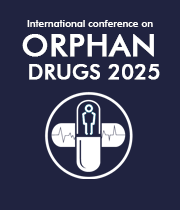Global Rare Diseases and Orphan Drug Market
A rare disease, sometimes known as an orphan disease, is one that affects a small proportion of the world's population. Even if symptoms may not develop immediately, the majority of these rare diseases are inherited and present throughout a patient's lifetime. There has been an increase in the occurrence of rare diseases all across the world. An orphan drug is a pharmaceutical product used for the diagnosis, prevention, and treatment of various rare conditions or diseases, according to the European Organization for Rare Diseases. These diseases are distinct from other diseases in that they have a very low prevalence rate relative to other diseases, and so are purchased by a very limited patient population. The global orphan drug market was valued at US$ 147.56 billion in 2019 and is predicted to grow at a CAGR of 10% to US$ 413.36 billion by 2030.
- Business Strategies
- Research & Development Activities
- Supply Chain Analysis
- Competitive Landscape
- Market Composition Analysis
- Analysis and Forecasts

Sergey Suchkov
The Russian University of Medicine & Russian Academy of Natural Sciences, Russian Federation
Vladlen Slepak
University of Miami, United States
Harsha Rajasimha
Jeeva Clinical Trials, Inc, United States
Vladlen Slepak
University of Miami, United States
Harsha Rajasimha
Jeeva Clinical Trials, Inc, United States
Sergey Suchkov
The Russian University of Medicine & Russian Academy of Natural Sciences, Russian Federation


Title : Emerging solutions for inclusive orphan drug clinical trials management
Harsha Rajasimha, Jeeva Clinical Trials, Inc, United States
Title : Ectopically expressed olfactory receptors as an untapped family of drug targets. Discovery of agonists and antagonists of OR51E1, an understudied G protein-coupled receptor
Vladlen Slepak, University of Miami, United States
Title : Personalized and Precision Medicine (PPM) as a unique healthcare model to secure the human healthcare and biosafety among childhood
Sergey Suchkov, The Russian University of Medicine & Russian Academy of Natural Sciences, Russian Federation
Title : Orphan and rare disease emerging as a global public health priority through the view of personalized and precision medicine: How to use the latter to revolutionize pediatric services
Sergey Suchkov, The Russian University of Medicine & Russian Academy of Natural Sciences, Russian Federation
Title : Personalized and Precision Medicine (PPM) though the view of reproductive healthcare, pediatric services and natural family planning: an option for clinicians and caregivers realize the potential of genomics-informed care to secure the individualized human biosafety
Sergey Suchkov, The Russian University of Medicine & Russian Academy of Natural Sciences, Russian Federation
Title : Democratizing ASO drug discovery at La Jolla Labs
Melissa Keenan, La Jolla Labs, United States